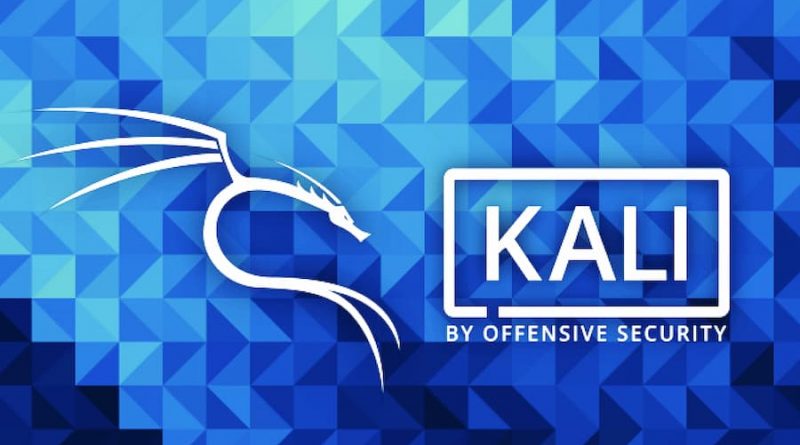How to Secure Your Kali Linux for Your Business
Kali Linux is a popular open-source, Debian-based Linux distribution for offensive security. This Backtrack Linux-based Linux distribution is a symbol of safety. Everywhere in the globe, penetration testers use Kali Linux. It is used by cybersecurity students to practice activities like penetration testing.
On the other hand, running Kali Linux with the default settings might not be a wise idea since its default settings are simple and easy to break, and Kali Linux is not a privacy-focused distribution, unlike Tails OS; it is made for attacking rather than defending.
You ought to explore Secure and Reliable Linux VPNs for your business. A VPN will encrypt your personal data and mask your location from being tracked. Your online activity is completely unidentifiable to hackers.
The idea of security is very broad. The majority of users of Kali do so to test security. However, Kali’s security must also be maintained.
Understanding Cybersecurity: Why Should You Care?
If you own a small business, you presumably already understand how crucial cybersecurity is. Websites or vital network infrastructure can go offline because of cyberattacks.
Larger organizations can frequently sustain a DDoS attack, while small enterprises frequently lack the capacity to recover from such an incident. Therefore, 60% of small enterprises will shut down following a cyber-attack. Consider spending the time training your staff on fundamental Internet best practices to reduce your risks.
Despite the significance of small business cybersecurity awareness, it’s critical to emphasize that many of them downplay its significance. A single breach can cause a significant data breach for these firms since they constantly have many devices connected to the internet.
Ways to Secure Your Kali Linux from Cyberattacks
-
Use Multi-Factor Authentication and Strong Passwords.
There will always be that one person who chooses their middle name or birthday as their password. Hackers are equipped with sophisticated tools and algorithms that can quickly guess millions of passwords.
Therefore, if your password is simple or clear, you put yourself at risk. Use a strong password that has at least 12 characters long and has a combination of capital and lowercase letters, numbers, and symbols. Implement multi-factor authentication as well to further secure your network.
You’ll likely be asked to input a second authentication factor when you log into an application, a website, or the cloud.
-
Two-Factor Authentication in Linux
Installing two-factor authentication can be a helpful defense against login-based assaults for Linux users. Due to the fact that a victim’s password is no longer sufficient to access information, the two-step verification method also defends against social engineering assaults.
The default implementation of the two-factor authentication (TFA) capability is not popular among Linux users.
-
Robust Antivirus
Regardless of how skilled and knowledgeable you and the staff are, mistakes are inevitable.
Installing reliable anti-virus and anti-malware software on all of your devices can add an extra layer of security, especially against phishing, and help to keep your business safe.
-
Keep Backups Regularly
It’s crucial to have backups of all of your key documents. You should keep physical backups of all your documents in addition to digital backups. You’ll have a complete backup in this manner.
You should arrange and store the backup papers in an organized way in order to adequately safeguard your data. If necessary, you can quickly recover the data after organizing the files.
-
Education & Training in Linux Cybersecurity
Education & Training in Linux Cybersecurity are Essential for Career Growth
A job in cyber security has several advantages, including a great work-life balance. The majority of cybersecurity experts work fewer than 40 hours per week, giving them time to enjoy their personal life. This is due to the strong demand for cybersecurity positions.
Programs for cybersecurity training might assist you in acquiring the required abilities. Careers in cyber security offer not only a high salary but also great job stability. These jobs can be lucrative and are in high demand.
The cybersecurity market is expanding right now. In the sector of cyber security, there are over 3.5 million unfilled employees, according to the U.S. Bureau of Labor Statistics.
-
Keep Records of Cybersecurity Policies
Next, be sure to record all of your company’s methods for deciding on the practices and policies for cybersecurity. Check the Small Business Administration Cybersecurity webpage for checklists, online resources, and other pertinent information if you own a small business but are new to IT security compliance.
Any company’s information security plan should include a cybersecurity policy. It is crucial to abide by rules that take into account both the needs of the sector and the overall dangerous environment.
-
Use Firewall Protection
The first line of security against hackers and cybercriminals is typically a firewall. To safeguard your network and data, make sure you have both internal and external firewalls. Make sure remote workers’ devices have firewalls as well if you have them.
Consider supplying them with firewall help to ensure compliance. Firewalls offer a variety of advantages. When a threat is found, they filter the traffic and notify the user. These gadgets are especially helpful if the connection is always active or has a static IP address.
Conclusion
It’s crucial to know that most cloud servers use the Linux operating system. Companies are transferring more data to the cloud. To ensure that their system is secure, a qualified Linux cybersecurity expert will have a thorough understanding of the important components of this operating system.
You ought to safeguard the accuracy of your data. This makes sure that it cannot be changed or tainted by anyone. Data need to be accessible whenever a user requires it. This necessitates adopting robust user authentication to protect your system from the outside world.

